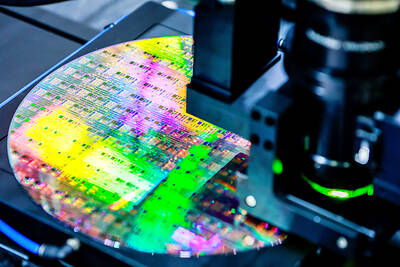Star Cruises, the leading cruise line in the Asia Pacific region, launched the Taiwan-Shanghai voyage yesterday, but the ship must stop at Japan's Okinawa islands because of Taipei's ban on direct sea links with China.
A total of 706 passengers boarded the 37,000-tonne SuperStar Aries at the Keelung Harbor, northeast of Taipei, for the seven-night, eight-day trip to Shanghai.
The ship will dock at Ishikaki islet -- a small Japanese island north of Taiwan -- on its way to Shanghai, and stop at Naha, the capital city of the Japanese island prefecture Okinawa, on its way back, Star Cruises' Taiwan marketing manager Lee Pei said by telephone.
The ship is scheduled to arrive at Shanghai Harbor at 9pm. Wednesday, and depart at 9pm, Thursday.
"The passengers can spend the night on board the ship or check into a Shanghai hotel," she said.
Lee said the public response to the Keelung-Shanghai trip is surprising good. "Our occupancy rate is over 90 percent," she said.
Star Cruises will only operate one Keelung-Shanghai cruise this year, but hopes to launch direct Keelung-Shanghai cruises after Taiwan has dropped the ban on direct sea links with China.
Launched on Dec. 17, 1999, Star Cruises bought a 50.2 percent stake in the Norwegian Cruise Line.
With the addition of NCL's 11 ships, Star Cruises has 19 luxury cruise ships, making it the world's fourth-largest cruise line. It has eight ships serving Asia-Pacific destinations.

TECH TITAN: Pandemic-era demand for semiconductors turbocharged the nation’s GDP per capita to surpass South Korea’s, but it still remains half that of Singapore Taiwan is set to surpass South Korea this year in terms of wealth for the first time in more than two decades, marking a shift in Asia’s economic ranks made possible by the ascent of Taiwan Semiconductor Manufacturing Co (TSMC, 台積電). According to the latest forecasts released on Thursday by the central bank, Taiwan’s GDP is expected to expand 4.55 percent this year, a further upward revision from the 4.45 percent estimate made by the statistics bureau last month. The growth trajectory puts Taiwan on track to exceed South Korea’s GDP per capita — a key measure of living standards — a

Samsung Electronics Co shares jumped 4.47 percent yesterday after reports it has won approval from Nvidia Corp for the use of advanced high-bandwidth memory (HBM) chips, which marks a breakthrough for the South Korean technology leader. The stock closed at 83,500 won in Seoul, the highest since July 31 last year. Yesterday’s gain comes after local media, including the Korea Economic Daily, reported that Samsung’s 12-layer HBM3E product recently passed Nvidia’s qualification tests. That clears the components for use in the artificial intelligence (AI) accelerators essential to the training of AI models from ChatGPT to DeepSeek (深度求索), and finally allows Samsung

Taiwan has imposed restrictions on the export of chips to South Africa over national security concerns, taking the unusual step of using its dominance of chip markets to pressure a country that is closely allied with China. Taiwan requires preapproval for the bulk of chips sold to the African nation, the International Trade Administration said in a statement. The decision emerged after Pretoria tried to downgrade Taipei’s representative office and force its move to Johannesburg from Pretoria, the Ministry of Foreign Affairs has said. The move reflects Taiwan’s economic clout and a growing frustration with getting sidelined by Beijing in the diplomatic community. Taiwan

READY TO HELP: Should TSMC require assistance, the government would fully cooperate in helping to speed up the establishment of the Chiayi plant, an official said Taiwan Semiconductor Manufacturing Co (TSMC, 台積電) yesterday said its investment plans in Taiwan are “unchanged” amid speculation that the chipmaker might have suspended construction work on its second chip packaging plant in Chiayi County and plans to move equipment arranged for the plant to the US. The Chinese-language Economic Daily News reported earlier yesterday that TSMC had halted the construction of the chip packaging plant, which was scheduled to be completed next year and begin mass production in 2028. TSMC did not directly address whether construction of the plant had halted, but said its investment plans in Taiwan remain “unchanged.” The chipmaker started